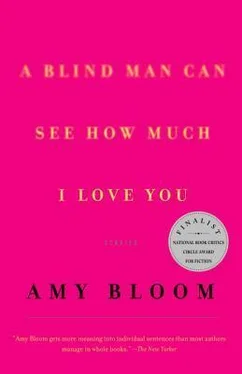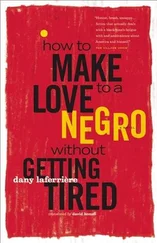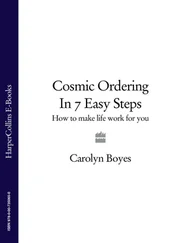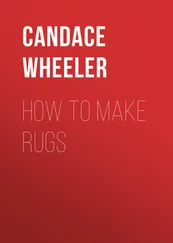I recognized the new house right away. My mother had dreamed and sketched its front porch and its swing a hundred times during my childhood, on every telephone-book cover and notepad we ever had. For years my father talked big about a glass-and-steel house on the water, recording studio overlooking the ocean, wraparound deck for major partying and jam sessions, and for years I sat next to him on the couch while he read the paper and I read the funnies and we listened to my mother tuck my brother in: “Once upon a time, there were two handsome princes, Prince Fric, who was a little older, and Prince Frac, who was a little younger. They lived with their parents, the King and Queen, in a beautiful little cottage with a beautiful front porch looking out over the River Wilde. They lived in the little cottage because a big old castle with a wraparound deck and a million windows is simply more trouble than it’s worth.”
Julia stood before us, both arms upraised, her body pale and square in front of an old willow, its branches pooling on the lawn. Claudine pulled off her sunglasses and said, “You don’t resemble her,” and I explained, as I thought I had explained several times between rue de Birague and the Massachusetts border, that this was my stepmother, that my real mother had died when I was nine and Julia had married my father and adopted me. “Ah,” said Claudine, “not your real mother.”
Mirabelle said, “Qu’est-ce que c’est, ça?”
“Tire swing,” I said.
Claudine said, “May I smoke?”
“I don’t know. She used to smoke.”
“Did she stop?”
“I don’t know. I don’t know if she smokes or not, Claudine.”
She reached for her jacket. “Does your mother know I’m coming?”
“Here we are, Poupée,” I said to Mirabelle.
I stood by the car and watched my mother make a fuss over Mirabelle’s red hair (speaking pretty good French, which I had never heard) and turn Claudine around to admire the crispness of her jacket. She shepherded us up the steps, thanking us for the gigantic and unimaginative bottle of toilet water. Claudine went into the bathroom; Mirabelle went out to the swing. My mother and I stood in her big white kitchen. She hadn’t touched me.
“Bourbon?” she said.
“It’s midnight in Paris, too late for me.”
“Right,” my mother said. “Gin-and-tonic?”
We were just clinking our glasses when Claudine came out and asked for water and an ashtray.
“No smoking in the house, Claudine. I’m sorry.”
Claudine shrugged, in that contemptuous way Parisians do, so wildly disdainful you have to laugh or hit them. She went outside, lighting up before she was through the door. We touched glasses again.
“Maybe you didn’t know I was bringing a friend?” I said.
My mother smiled. “Buster didn’t mention it.”
“Do you mind?”
“I don’t mind. You might have been bringing her to meet me. I don’t think you did, but you might have. And a very cute kid. Really adorable.”
“And Claudine?”
“Very pretty. Chien. That’s the word I remember, I don’t know if they still say that.”
Chien is a bitchy, stylish appeal. They do still say that, and my own landlady has said it of Claudine.
Julia dug her hands into a bowl of tarragon and cream cheese and pushed it, one little white gob at a time, under the skin of the big chicken sitting on the counter. “Do you cook?”
“I do. I’m a good cook. Like Pop.”
My mother put the chicken in the oven and laughed. “Honey, what did your father ever cook?”
“He was a good cook. He made those big breakfasts on Sunday, he barbecued great short ribs, I remember those.”
“Oh, Abyssinian ribs. I remember them too. Those were some great parties in those bad old days. Even after he stopped drinking, your father was really fun at a party.” She smiled as if he were still in the room.
My father was a madly friendly, kissy unreliable drunk when I was a little boy, and a successful, dependable musician and father after he met Julia. Once she became my mother, I never worried about him, I never hid again from that red-eyed, wet-lipped stranger, but I did occasionally miss the old drunk.
Claudine stuck her head back into the kitchen, beautiful and squinting through her smoke, and Mirabelle ran in beneath her. My mother handed her two carrots and a large peeler with a black spongy handle for arthritic cooks, and Mirabelle flourished it at us both, our little musketeer. My mother brought out three less fancy peelers, and while we worked our way through a good-size pile of carrots and pink potatoes, she told us how she met my father at Barbara Cook’s house and how they both ditched their dates, my mother leaving behind her favorite coat. Claudine told us about the lady who snuck twin Siamese blue points into the hotel in her ventilated Vuitton trunk and bailed out on her bill, taking six towels and leaving the cats behind. Claudine laughed at my mother’s story and shook her head over the lost red beaver jacket, and my mother laughed at Claudine’s story and shook her head over people’s foolishness. Mirabelle fished the lime out of Claudine’s club soda and sucked on it.
A feeling of goodwill and confidence settled on me for no reason I can imagine.
“Hey,” I said, “let’s stay over.”
My mother smiled and looked at Claudine.
“Perhaps we will just see how we feel,” Claudine said. “I am a little fatigue.”
“Why don’t you take a nap before dinner,” my mother and I said simultaneously.
“Perhaps,” she said, and kept peeling.
I think now that I must have given Claudine the wrong impression, that she’d come expecting a doddering old lady, none too sharp or tidy these days, living on dented canned goods and requiring a short, sadly empty visit before she shuffled off this mortal coil. Julia, with a silver braid hanging down her broad back, in black T-shirt, black pants, and black two-dollar flip-flops on her wide coral-tipped feet, was not that old lady at all.
My mother gave Mirabelle a bowl of cut-up vegetables to put on the table, and she carried it like treasure, the pink radishes bobbing among the ice cubes. Claudine waved her hand around, wanting another cigarette, and my mother gave her a glass of red wine. Claudine put it down a good ten inches away from her.
“I am sorry. I must return. Lionel, will you arrange your car? Mirabelle and me must return after dinner. Thank you, Madame Sampson, for your kindness.”
My mother lifted her glass to Claudine. “Anytime. I hope you both come again.” She did not say anything like “Oh no, my dear, it’s such a long drive,” or “Lionel, you can’t let Claudine make that drive all by herself.” I poured myself another drink. I’m still surprised I didn’t offer to drive, because I was brought up properly, and because I had been sure until the moment Mirabelle pulled the lime out of Claudine’s glass that I wanted to leave, that I had come only so that I could depart.
Mirabelle told my mother the long story of the airplane meal and the spilled soda and the nice lady and the bad little boy from Texas and Monsieur Teddy’s difficult flight squashed in a suitcase with a hiking boot pressed against his nose for seven hours. My mother laughed and admired and clucked sympathetically in all the right places, passing platters of chicken and bowls of cucumber salad and minted peas. She poured another grenadine-and-ginger-ale for Mirabelle, who watched the bubbles rise through the fuchsia syrup. She had just reached for her glass when Claudine arranged her knife and fork on her plate and stood up.
Mirabelle sighed, tilting her head back to drain her drink, like one of my father’s old buddies at closing time. We all watched her swallow. My mother made very strong coffee for Claudine, filling an old silver thermos and putting together a plastic-wrapped mound of lemon squares for the road. She doted on Mirabelle and deferred to Claudine as if they were my lovable child and my formidable wife and she my fond and familiar mother. She refused to let us clear the table and amused Mirabelle while Claudine changed into comfortable driving clothes.
Читать дальше












